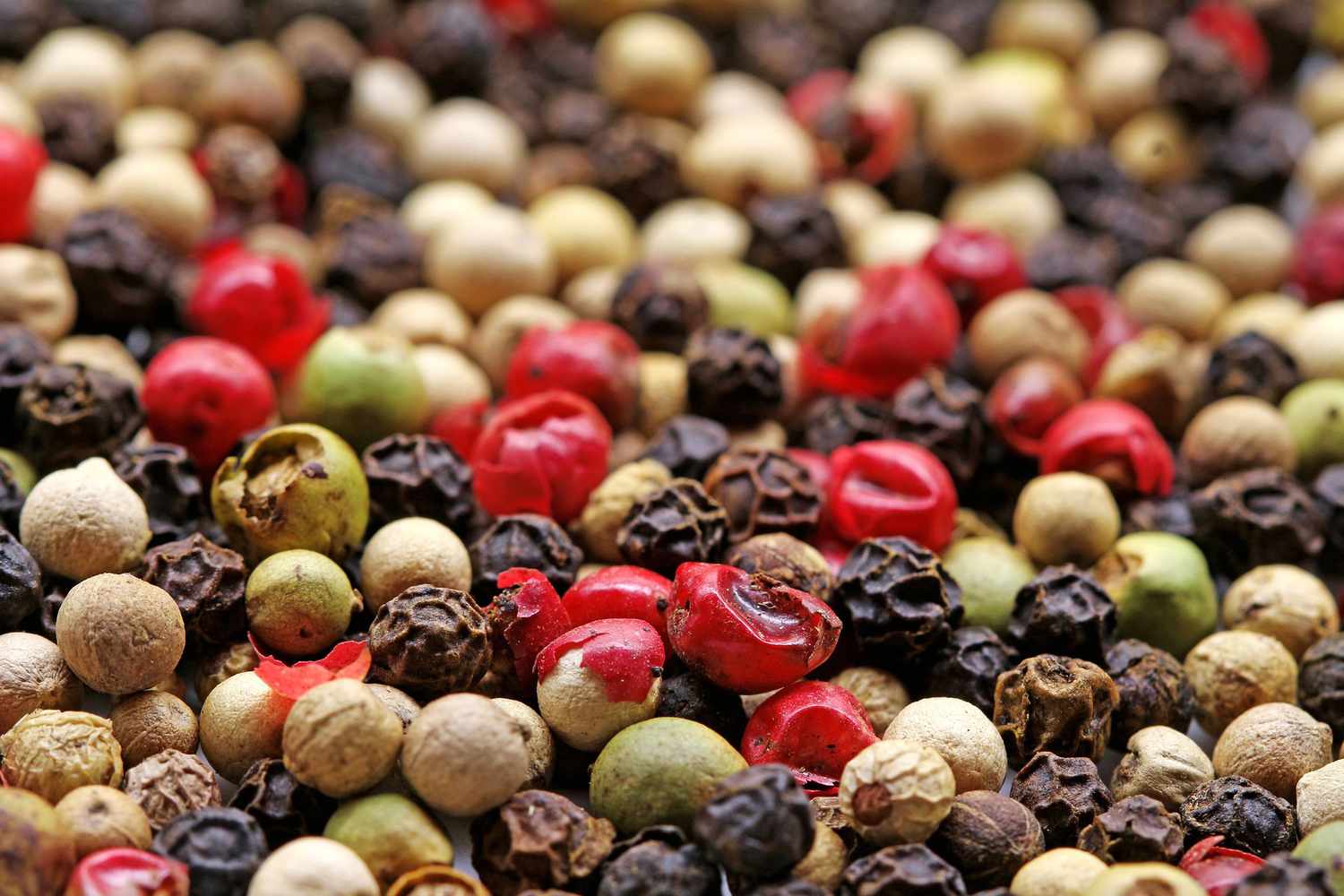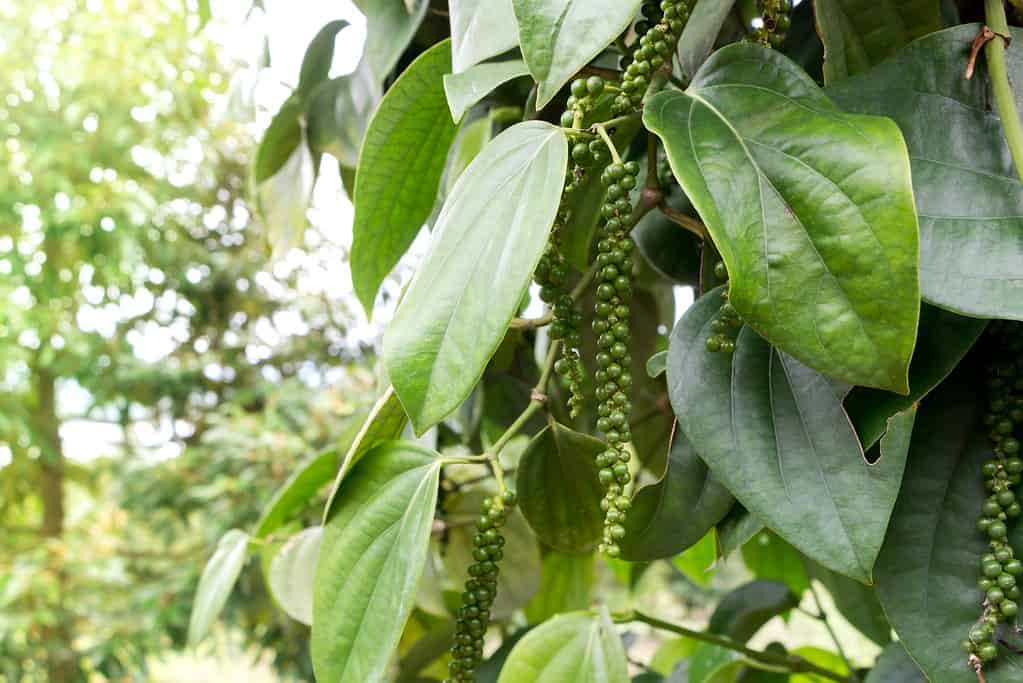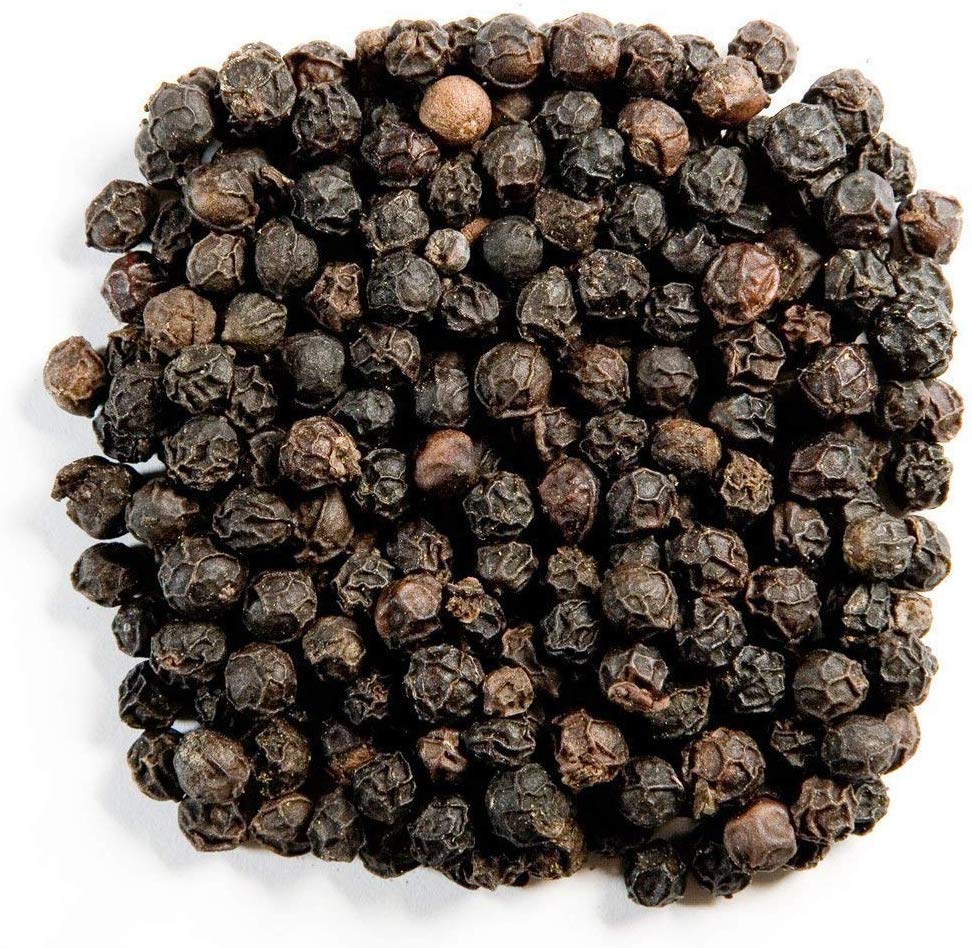Black Pepper
Black pepper, scientifically known as Piper nigrum, is a flowering vine in the family Piperaceae, cultivated for its fruit, which is usually dried and used as a spice and seasoning. The fruit, known as a peppercorn when dried, is native to South India but is now also grown in other tropical regions.
Black pepper is one of the most commonly used and traded spices in the world. The process of making black pepper involves harvesting the unripe green drupes (pepper berries), which are then fermented and dried. This process leads to the characteristic wrinkled, black appearance of the dried peppercorns.
Black pepper has a pungent and slightly spicy flavor due to the presence of piperine, a compound that gives it its distinct taste. It is used in various culinary applications to add flavor to dishes, and it's often found on dining tables in the form of ground pepper or whole peppercorns, which can be freshly ground using a pepper mill. Beyond its culinary uses, black pepper has been valued for its potential health benefits and has a long history of use in traditional medicine.
Black pepper is a spice that is used in relatively small quantities, so its nutritional contribution per serving is minimal. However, it does contain some nutrients and bioactive compounds. Here are some nutritional values for black pepper per 100 grams:
- **Calories:** 251
- **Water:** 11%
- **Protein:** 10.4 grams
- **Carbohydrates:** 63 grams
- Dietary Fiber: 26.5 grams
- Sugars: 0.6 grams
- **Fat:** 3.3 grams
- Saturated Fat: 1.4 grams
- Monounsaturated Fat: 0.6 grams
- Polyunsaturated Fat: 1.2 grams
- **Vitamins and Minerals:**
- Vitamin K: 163.7 micrograms (204% of the daily recommended intake)
- Calcium: 437 milligrams
- Iron: 7.6 milligrams
- Magnesium: 171 milligrams
- Phosphorus: 173 milligrams
- Potassium: 1259 milligrams
- Zinc: 1.4 milligrams
It's important to note that while black pepper does provide some nutrients, it is usually consumed in such small amounts that it doesn't significantly contribute to overall nutrient intake. Its value lies more in its flavor and the presence of bioactive compounds, such as piperine, which has been studied for its potential health benefits.





